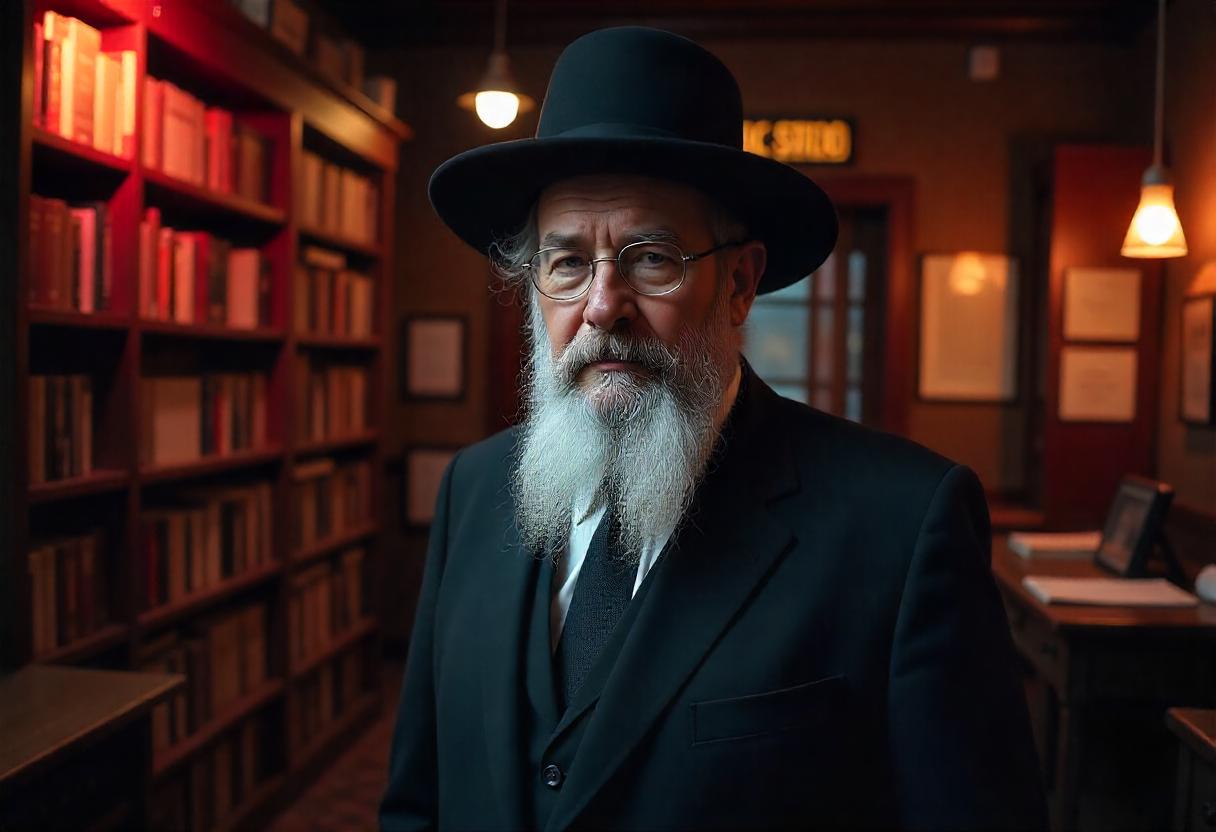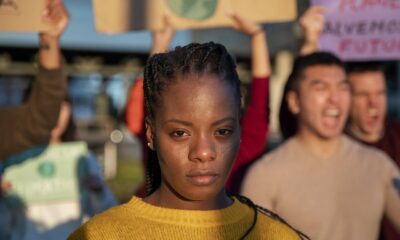NEWS
Brother Nathanael: The Controversial Voice in Modern Discourse

Brother Nathanael Kapner is a former Jewish man who converted to Orthodox Christianity and became a public figure known for his outspoken views on politics, religion, and culture. His transformation from Judaism to Christianity, coupled with his strong opinions, has made him a polarizing figure in modern discourse.
Early Life and Religious Conversion
Born as Milton Kapner into a Jewish family, Brother Nathanael’s early years were deeply rooted in Jewish traditions. However, as he grew older, he found himself drawn to Christianity, ultimately converting to Eastern Orthodoxy. This transition was not without personal and societal challenges, as it meant breaking away from his family’s faith and embracing a new religious identity.
Becoming an Orthodox Christian Monk
After his conversion, Brother Nathanael dedicated his life to Orthodox Christianity. He adopted the monastic lifestyle, emphasizing ascetic practices, prayer, and religious devotion. His journey into monasticism played a significant role in shaping his theological and ideological perspectives.
Brother Nathanael’s Online Presence
Brother Nathanael is widely known for his online presence, particularly his YouTube videos and website, where he discusses political and social issues from his unique perspective. His content often critiques mainstream narratives, which has led to both widespread support and harsh criticism.
His Views on Politics and Society
Brother Nathanael frequently addresses issues related to global politics, media influence, and religious values. He is known for his criticism of powerful institutions, particularly those he believes exert undue influence over society. His opinions have led to controversy, with some viewing him as a truth-teller and others accusing him of promoting conspiracy theories.
Supporters and Critics
Like many controversial figures, Brother Nathanael has a strong following that appreciates his willingness to challenge mainstream narratives. However, he also faces criticism, particularly from those who view his statements as inflammatory or biased. His views on Judaism, in particular, have sparked accusations of anti-Semitism.
Also read: Eagles Autism Foundation: Empowering Lives Through Research and Support
Censorship and Social Media Challenges
Due to the nature of his content, Brother Nathanael has faced challenges in maintaining his online platforms. Some of his videos have been removed, and his accounts have been restricted on various platforms, reflecting the ongoing debate over free speech and content moderation in the digital age.
The Impact of Brother Nathanael’s Message
Despite the controversies, Brother Nathanael’s influence is undeniable. He has sparked discussions on religion, politics, and media, encouraging people to question dominant narratives. His impact extends beyond his immediate audience, influencing broader debates on faith, society, and power.
FAQs
What religion is Brother Nathanael?
Brother Nathanael is an Orthodox Christian and follows the monastic traditions of Eastern Orthodoxy.
Why is Brother Nathanael controversial?
His outspoken views on politics, media, and religion, particularly his criticism of certain institutions, have made him a polarizing figure.
What was Brother Nathanael’s original faith?
He was born into a Jewish family but later converted to Orthodox Christianity.
Where does Brother Nathanael share his views?
He shares his opinions through YouTube, his personal website, and various social media platforms.
Has Brother Nathanael faced censorship?
Yes, some of his content has been removed or restricted on social media due to its controversial nature.
Is Brother Nathanael associated with any political group?
While he discusses political issues, he does not formally align with any specific political organization.
Does Brother Nathanael have a religious following?
He has a dedicated audience, but he does not lead a formal religious group or church.
Conclusion
It remains a complex and debated figure in modern discourse. His journey from Judaism to Orthodox Christianity and his outspoken views continue to spark discussions on faith, politics, and free speech. Whether one agrees with him or not, his influence is undeniable in shaping contemporary debates.
-

 HUMAN RIGHTS5 months ago
HUMAN RIGHTS5 months agoMercy Ships Scandal: Unraveling the Truth Behind the Allegations
-

 SOCIAL AWARENESS5 months ago
SOCIAL AWARENESS5 months agoIs Helping Hands Legit? Unveiling the Truth Behind This Organization
-

 HUMAN RIGHTS6 months ago
HUMAN RIGHTS6 months agoHuman Rights Issues: Challenges and Progress in a Globalized World
-

 SOCIAL AWARENESS5 months ago
SOCIAL AWARENESS5 months agoNational Charity League: A Legacy of Leadership and Service
